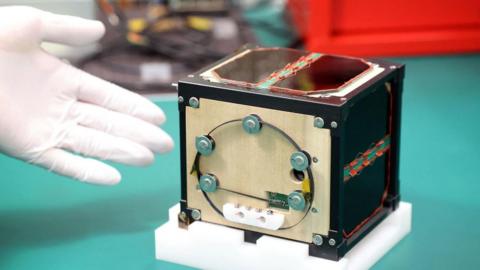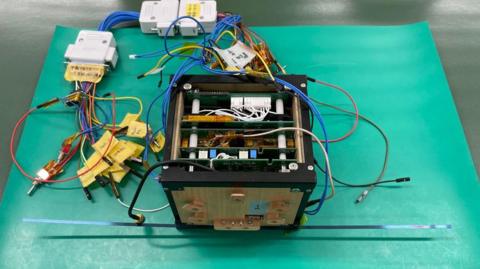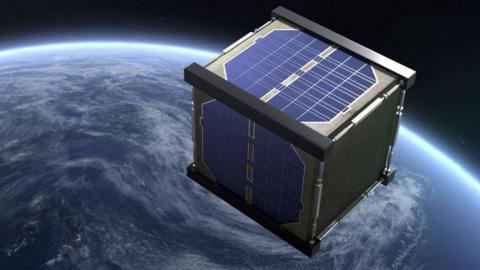The world's first wood-panelled satellite has been launched into space to test the suitability of timber as a renewable building material in future exploration of destinations like the Moon and Mars.
Made by researchers in Japan, the tiny satellite weighing just 900g is heading for the International Space Station on a SpaceX mission. It will then be released into orbit above the Earth.
Named LignoSat, after the Latin word for wood, its panels have been built from a type of magnolia tree, using a traditional technique without screws or glue.
Researchers at Kyoto University who developed it hope it may be possible in the future to replace some metals used in space exploration with wood.


